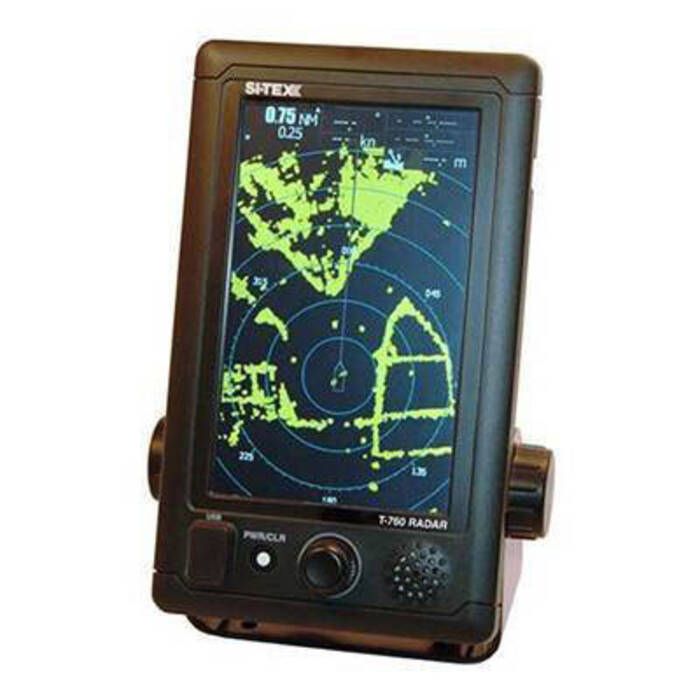Radars
About Radars
Marine Radar for Sale
Marine radio and range detection (radar) units are an important part of the electronic systems aboard your boat.They let you 'see' where you're going even through the stormiest weather or blackest nights.
Without a boat radar system, you're navigating blindly at the worst possible times!
Think of your radar unit as part of the safety equipment you carry onboard.
You wouldn't set out without personal flotation devices (PFDs) or a fire extinguisher, would you?
Well, you shouldn't skip a good radar system, either!
Boat & yacht radar systems will alert you to oncoming vessels or other hazardous objects that are anywhere from several hundred feet to several miles away.
A marine radar unit not only alerts you to possible dangers, it also keeps track of your boat's position relative to those potential dangers.
That's especially helpful if you're navigating through a crowded harbor or hugging a rocky shoreline!
Selecting the right marine radar for your boat
If you're thinking about installing a radar system on your boat, there are certain things to keep in mind.First off, what type of waters are you planning on navigating? Are they crowded with other boats or do you have to cross busy shipping lines?
Are you navigating through an archipelago of tiny islands? Better have a marine radar onboard!
How do you plan on using your radar system?
Will you use it every trip or do you want it on hand 'just in case'?
If you're using it all the time, you might want to invest in a more feature-rich marine radar for sale.
Are you considering classic pulse radar or a more energy-efficient solid-state system?
A solid-state system gives you quicker, more distinct results (especially nearby).
Pulse radar can pick up smaller targets, like birds, much farther away.
If you are a long-range cruiser, you may want to consider using both since each has its own advantages.
Are you frequently out in your boat at night?
Do you regularly encounter rainstorms, fog, or other low-visibility conditions?
Choose a radar unit based on the visibility challenges you most often encounter.
Will your existing boat electronics work with radar?
A combination unit can merge radar, GPS, sonar, and even fish-finding functions into one multifunction unit.
This not only saves money, it also helps keep your helm uncluttered!
What type of boat do you have and how big is it?
Don't rule out a small boat radar system.
If your boat is big enough to run into something, it's big enough to need a boat radar system!
Any boat which requires space or time to maneuver, like a sailboat, can definitely use the extra cushion of warning time that radar provides.





